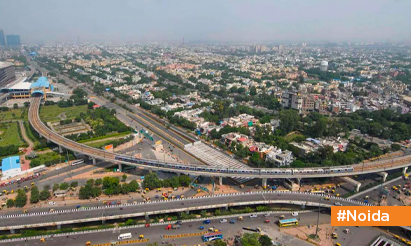India’s Housing Market Soars with Rapid Growth, Yet Looms Questions of Sustainability!
India’s housing market has witnessed a remarkable surge in growth, reflecting a dynamic blend of economic factors, demographic shifts, and urbanization trends. However, amid the euphoria of expansion, a pertinent question emerges: Can this rapid growth be sustained over the long term? As real estate development continues at an impressive pace, it is essential to dissect the elements contributing to this boom and consider the potential challenges that lie ahead.
A Multi-Faceted Growth Story
The factors driving India’s housing market growth are diverse and intertwined. A burgeoning middle-class population, urban migration, government initiatives like “Housing for All,” and favorable interest rates have collectively fueled the demand for housing. Affordable housing segments are witnessing particularly robust growth, as developers cater to the aspirational desires of the Indian populace.
Urbanization and Demographics
India’s ongoing urbanization is a major catalyst for the real estate boom. With a rapid influx of people into cities, the demand for housing in urban centers has surged. This urban shift is further compounded by the millennial generation’s preferences for modern amenities, leading to increased demand for residential projects offering convenience and quality of life.
Government Initiatives and Financial Incentives
The Indian government’s proactive measures, such as the “Pradhan Mantri Awas Yojana” and the “Credit Linked Subsidy Scheme,” have acted as propellants, propelling the housing sector forward. Subsidies, tax benefits, and reduced interest rates for home loans have made homeownership more accessible, drawing in a wider range of potential buyers.
The Sustainability Conundrum
While India’s housing market continues to flourish, concerns about sustainability come into play. As land availability becomes scarcer in urban areas, developers are venturing into the outskirts, potentially leading to issues of urban sprawl, inadequate infrastructure, and lengthy commutes for residents. Additionally, as demand surges, questions arise about the affordability of housing options in the long run.
External Factors and Economic Stability
India’s real estate market isn’t impervious to external economic factors. Fluctuations in interest rates, global economic conditions, and changes in government policies can significantly impact the market’s growth trajectory. Economic stability and policy continuity will be critical to ensure that the housing market remains robust and resilient.
India’s housing market is currently experiencing an impressive phase of growth, driven by a convergence of factors that have aligned favorably. The surge in demand, bolstered by urbanization, government initiatives, and evolving demographics, has led to a flourishing real estate landscape. However, as the sector expands, it’s essential to address concerns about sustainability, affordability, and the impact of external factors on its long-term trajectory. Balancing growth with responsible urban development, investing in infrastructure, and fostering economic stability will be pivotal in determining whether India’s housing market can sustain its momentum over the years to come.
Disclaimer: The views expressed above are for informational purposes only based on industry reports and related news stories. PropertyPistol does not guarantee the accuracy, completeness, or reliability of the information and shall not be held responsible for any action taken based on the published information.




